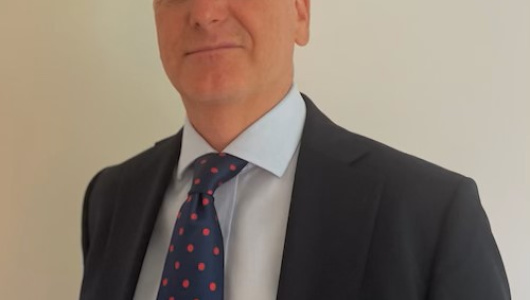 I was so excited to vote for the first time when I turned 18. My birthday had been six months too late for me to be eligible for that year’s general election, so the local election was the first chance I had put my X in a box. I was fascinated by voting as a young child and had waited so long to have my say.
I was so excited to vote for the first time when I turned 18. My birthday had been six months too late for me to be eligible for that year’s general election, so the local election was the first chance I had put my X in a box. I was fascinated by voting as a young child and had waited so long to have my say.
Sadly, by the time I finally got to vote in a general election, my early enthusiasm had waned. I was studying newspaper journalism and the tutor who taught the politics element of the course told us that during a change of government, all that really changes is the figurehead. The senior civil servants who really hold the power carry on just the same.
That was in 1997 – the year of New Labour’s landslide victory, soundtracked to D:Ream’s Things Can Only Get Better. Despite widespread optimism, I never saw politics in the same light once my tutor had burst my bubble. Whoever ‘got in’, I didn’t think anything would really change.
In some constituencies, even trying to oust an incumbent party is a Herculean task. Where I live, the Conservatives have won the seat in every election since the constituency was created in 1974. Voting against the tide seems pointless in places like this – but people still do it and it’s important that they do.
For all my cynicism, I know we’ve got to act on things like hope and belief. That’s how big changes and great achievements start – with someone’s dream, a germ of an idea and dogged determination.
I know we’ve got to act on things like hope and belief. That’s how big changes and great achievements start
A couple of work-related conversations brought this home to me recently. One was when I caught up with life-planning pioneer George Kinder after reading his latest book, The Three Domains of Freedom. The other was a chat with Paul Hargreaves, a B-Corp ambassador and chief executive of wholesale food and drink distributor Cotswold Fayre. I was talking to him about whether generosity – without the expectation of receiving anything in return – is the key to building a successful business.
Hargreaves and Kinder come from very different parts of the business world, but their messages, as authors of business-related books, are broadly similar. They point out that our world revolves around self-interest, but it doesn’t have to be like this – that it is within our power to bring about change.
Hargreaves comes at this from a cultural perspective, highlighting that in the West, success is about pursuing individual goals – including money and materialistic things – which creates a competitive culture.
Hargreaves talked to me about the element of giving to get something back that exists in our culture. So, when businesses show generosity towards their employees as a thank you for their work, or they do something good in the community, there’s often an expectation of quid pro quo – firms get employees who stay or the firm builds a good reputation, for example.
Spending time in India and Africa, where life is built around the good of the community and where it’s a privilege to help someone else, showed Hargreaves there could be another way of doing business – where you do good without expecting anything back.
In a business context, I think it’s accepted that generosity is a two-way street
I’d never thought about the cultural side of this before, but it’s spot on. There are people I bought a Christmas present for this year without expecting one back. My gifts were tokens of appreciation for things these people had done for me during the year.
You could argue that in doing this, I was already acting on our cultural expectations around giving to get back. But far more interesting, I think, were the responses from the recipients who hadn’t expected to receive a gift. Although they were touched, some felt guilty at not having bought anything in return – even though I’d explained why that wasn’t necessary.
In a business context, I think it’s accepted that generosity is a two-way street, where I’m happy doing this for this for you because you do that for me. It oils the wheels of industry, but this obviously has to be within the rules of the land, like the tax rules and inducement rules.
Leaving that aside, if you give without expecting anything back, I’d argue you are expecting people to accept it in the manner it was given. You will expect them not take advantage and perhaps show their appreciation by passing that kindness onto others.
There will always be a minority who are out for themselves. Going back to my childhood, I remember one ‘friend’ who only played with me when I had sweets. But if the vast majority of people did ‘a good deed’ without any strings, I wonder how much of a difference it would make to the way we conduct business.
Although I can take responsibility for how I conduct myself, I can’t force others to follow
Kinder’s concept of FIAT – Fiduciary In All Things – takes these ideas a step further. It builds on the idea of democracy and calls for all our institutions – corporate, non-profit and governmental – to be trustworthy in everything they say and do. It involves those institutions putting the interests of others, democracy and the planet above self-interest.
My childhood self would have bought into this immediately, no question. But as a young adult I’d have thought it impossible. Now, I take the middle path between those polarised positions. Although I can take responsibility for how I conduct myself, I can’t force others to follow.
“We will need all of us working together to make this successful,” writes Kinder in his book. I wholeheartedly agree. But I question whether we’re capable of working together to change the world, or more realistically, the little bit of it we call ours.
Look at the relationship between the CII and PFS, for example. If things can get this fraught within the profession, can it be unified enough to bring about the more abstract and bigger changes that currently lie in the pages of a book?















Two observations:
You can’t change the world. There are over 60 million people in the UK – what value of your one vote?
Politicians – are the people who give prostitution a good name.
In a word yes ..
I am a true believer in, if a butterfly flaps it’s tiny wings, the air displacement can be felt across the country ..
On saying this politics in this country is broken, red ..blue ? Is there truly a difference ? Damn sure used to be ..
Voting in this instance is as much use as agonising over the colour of your pants, worn under your overalls, whilst mucking out the pig sty.
Power and indeed change, may best be achieved, in not voting at all, what a nice thought, at the next general election, not one person turned up to the polling stations.